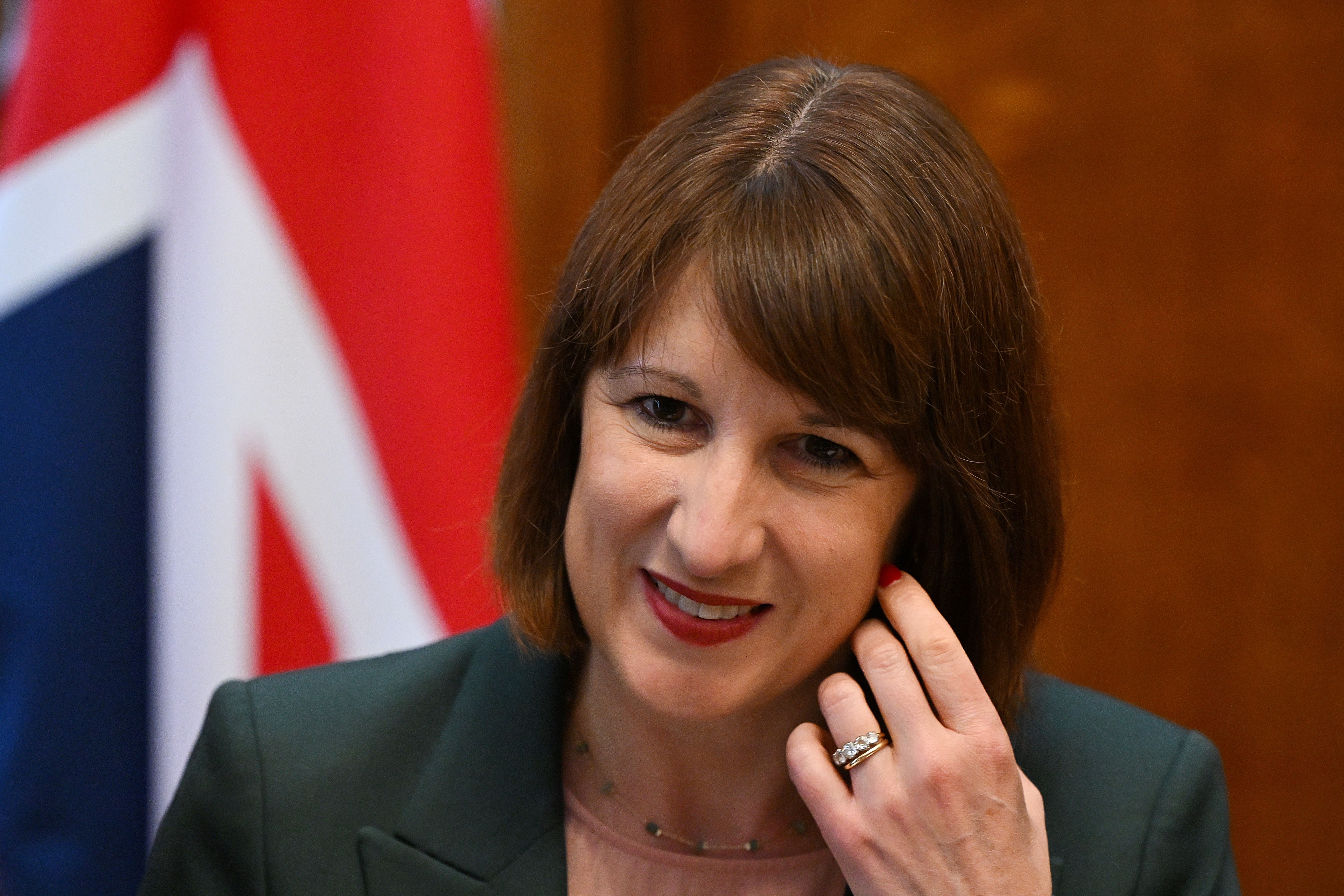‘No blank cheques’ to deal with public sector pay demands, says Reeves
The Chancellor will deliver her first budget on October 30.

Rachel Reeves has said there are “no blank cheques” to deal with pay demands from public sector unions, amid criticism of the Government’s attempts to end strike action.
The Chancellor has already announced the Government would accept the recommendations of pay review bodies to grant millions of public sector workers above-inflation pay rises of between 5% and 6%.
Junior doctors will be given pay increases of around 20% over two years while a multi-year pay offer has been made to train drivers in a bid to resolve the long-running pay disputes and end strikes.
The Conservatives responded by accusing Labour of having “caved to the unions”.
Keir Starmer and I decide our policy, not the trade unions. There are no blank cheques.
Ms Reeves told the Guardian that the Government wanted to “draw a line” under strikes given the cost of them to the economy, saying: “We have not caved in to any demands.
“We haven’t done so with the train drivers or the junior doctors.”
She noted there are “massive recruitment and retention problems” across the armed forces, teaching and the NHS.
Against the backdrop of calls for “pay restoration” settlements to reverse real-term wage reductions for public sector workers, Ms Reeves said: “(Prime Minister) Keir Starmer and I decide our policy, not the trade unions.
“There are no blank cheques.”
Meeting the 2024-25 pay proposals will cost £9.4 billion more than the previous Conservative administration has budgeted for.
Ms Reeves last month said she would ask Government departments to find savings of at least £3 billion to help fund them, including by stopping non-essential spending on consultancy and communications.
The Chancellor also rejected suggestions she was repeating the austerity programme of the coalition government following the 2010 election, telling The Guardian: “I have just given the first real-terms pay increase to public sector workers in 10 years. That’s not austerity.”
Ms Reeves said she will outline the “precise way to measure debt” in October’s budget, noting it is “reasonable for the government to borrow to invest”.
In light of decisions to scrap infrastructure projects, Ms Reeves also said: “I am going to have to take difficult decisions. I don’t relish them but I am ready for them.
“I will do what it takes to put the public finances on a firmer footing. My job as Chancellor is to make sure the sums add up.”
Ms Reeves last month said she would stop winter fuel payments for those people in England and Wales who are not in receipt of pension credits or other means-tested benefits.
That policy is expected to reduce the number of pensioners in receipt of the payment by 10 million, from 11.4 million to 1.5 million, saving some £1.4 billion this financial year.
On Thursday, the Government laid in Parliament the regulations to make the change.
The explanatory memorandum for the Social Fund Winter Fuel Payment Regulations 2024 states: “The measure is in response to the substantial pressures faced by the public finances this year and next.
“Whilst making the necessary Exchequer savings, it retains support for pensioner households on the lowest incomes.”
The regulations are expected to come into force on September 16.
MPs can seek to challenge the regulations in the House of Commons, which returns from its summer recess on September 2, although the Government has a working majority of 167.
Bookmark popover
Removed from bookmarks